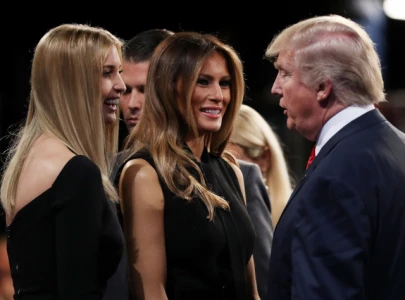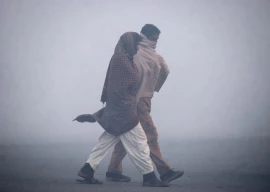
These statements can be juxtaposed with Chief of Army Staff General Ashfaq Parvez Kayani’s remarks of last week following the reopening of the so-called Mehrangate case at the Supreme Court. General Kayani said: “If you want to fight with history in this context, it’s your choice to do so. However, establishing institutions requires a lot of hard work and the media should be careful that their words do not undermine these [institutions]”. He noted that the American media did not criticise “as harshly as the Pakistan Army was criticised by Pakistanis”. He further elaborated: “Ruthless criticism of ISI in Pakistan was far higher than any criticism made on RAW, Mossad or the CIA in India, Israel or USA”.
First of all, let us look at his observations in the light of his decision as army chief not to interfere in the functioning of a democratic government despite provocations. In this context, since we are now embarked on a new era of civil-military relations, it is better to forget the past and look at the positive aspects of this new development and look ahead rather than back. What is unfolding now in the shape of media discussion is an act of reconciliation with the past with the intent of not repeating it. A judicial commission charged with the murder of journalist Saleem Shahzad was looking at the possibility of ISI having done the deed. In its final report it exonerated the ISI but what the commission went on to do was to propose the most far-reaching reform to-date of the ISI as an institution, which was to bring it under parliamentary scrutiny and oversight. Should that be considered a destructive act? Surprisingly, the media welcomed the proposal of reform and has asked the government to implement it.
For any meaningful reform and correction, investigation into any malfeasance of the past is needed so that remedial measures can be taken. Exemption, if that is what the army chief wants, is not the answer at all. Take the case of the money put together fraudulently for distribution to rig the 1990 election. The case was correctly brought up in 1996 after revelations were made inside parliament. It involved the then army chief and the chief of the ISI. Since the army was calling the shots and was able to dominate the judiciary — which served as handmaiden to military rulers till the emergence of the current Supreme Court — it is to be determined who was finally to blame. That would lead to correction called reform.
The finger is pointed persistently at the functioning of the ISI. Has the time not arrived to review the working of this institution and put it on a better footing so that it is viewed, not with misgivings, but with the same confidence that Indians repose in RAW and the Americans in CIA? We are lucky that we have someone like General Kayani leading the army in these difficult times who is determined to resist the temptation of staging a coup in the name of national security. General Kayani’s decision not to shelter his erstwhile boss General Musharraf from the consequences of his mistakes as military ruler has given rise to an independent judiciary which is now subjecting the democratic system to proper judicial oversight.
Published in The Express Tribune, March 20th, 2012.
COMMENTS (15)
Comments are moderated and generally will be posted if they are on-topic and not abusive.
For more information, please see our Comments FAQ

1726117332-0/Megan-Thee-Stallion-(1)1726117332-0-165x106.webp)
















@haroon ali: dear brother i think ISI also come under Prime Minster control in Pakistan. There is only DG from Pak Army.and well said mr A J Khan that what had done by civilian govt with PIA Railwaly. Wapda, Police are you want that ISI should also face the same problem.
General Kiyani is a man of words and a self made person . proud on you Sir :)
"Ruthless criticism of ISI in Pakistan was far higher than any criticism made on RAW, Mossad or the CIA in India, Israel or USA”. The answer to that statement of Gen. Kayani would be : RAW, Moussad or CIA have not done what the ISI has done to it's own people. Starting from disrupting democracy to the case of missing people, to killing independent press people" And to our dear friend who wrote this Editorial, It was not General Kayani who restored the judiciary it was us (the people of Pakistan) who did it. General Kayani had no choice. Also my dear Editor, it would be nice if people like you in the media stopped worhshipping the army and emphasised more on the power of people. The events of the last few months have proved that the General Sahib are still very much keen to govern and infact will leave no stone unturned to have thier way..but we , the people of Pakistan will not let it happen- NOT THIS TIME AND NOT ANYMORE.
Great editorial. Covers almost all dimensions of the problem.
@Owais Ehsan: Are you suggesting that everybody in Pakistan is incompetent except the army? I still have hope and confidence in the people of Pakistan, call me old fashioned! Don't give up hope there is corruption in other nations too but they have not handed over their institutions to the khakis. Regards, Mirza
Bringing it under Civilian control would make in another non-efficient entity (Police, Railway, Wapda, PIA , IB , FIA etc)
All it needs is some close high level monitoring from Military, Civilian and Judicial comission,.
A thing called restructuring is what required in ISI. How and what to do? well! for that we are not qualified. One thing is clear that INTER SERVICES INTELLIGENCE must be under Armed forces as it is evident from its name. The Government of Pakistan should upgrade INTELLIGENCE BUREAU or make some other Institution like CIA and RAW. I will remind you of Great cloak and dagger story writer IBN-e- Safi. He was a great mind of his time and was born well before he was ought to, In fiction, he created a secret service under Foreign Ministry. HOW ABOUT THAT!!!!!!!!!!!!!!!!!!!!!!.
Two questions from the author of the editorial; Q 1. Why is media refusing reforms suggested by the Government for its improvement. Q 2. Has the civilians done marvels in the departments they are heading(Police, FBR, Customs, Excise and Taxation, Municipal services, Courts, Magistracy, Railway, WAPDA etc), that they are going to take the ISI to skies. My suggestion is that they should first put in order what they have, instead of biting more than what you can swallow.
@haroon ali: Very sensible comments sir! Great Editorial ET, kudos to you. While the situation of Pakistan is not the same as the other countries nobody knows even the names of the head of RAW or its working. In Pakistan the generals and judges make political statments every other day and it must be stopped. They should remain neutral and must act like that. Thanks and regards, Mirza
Well said; it is difficult to make amends without looking into as to what went wrong, when and how?
CIA, Mossad and RAW comes under the civilian government whereas ISI is under the military. So in those cases you simply criticize the civil government but since our ISI doesn't accept or come under the civilians and makes it's own policies, it has to be criticized directly.
Now that is a balanced and constructive approach to the issue. Well done.
The best editorial I've read at ET so far. Absolutely brilliant!
Bravo!
Brilliant editorial!